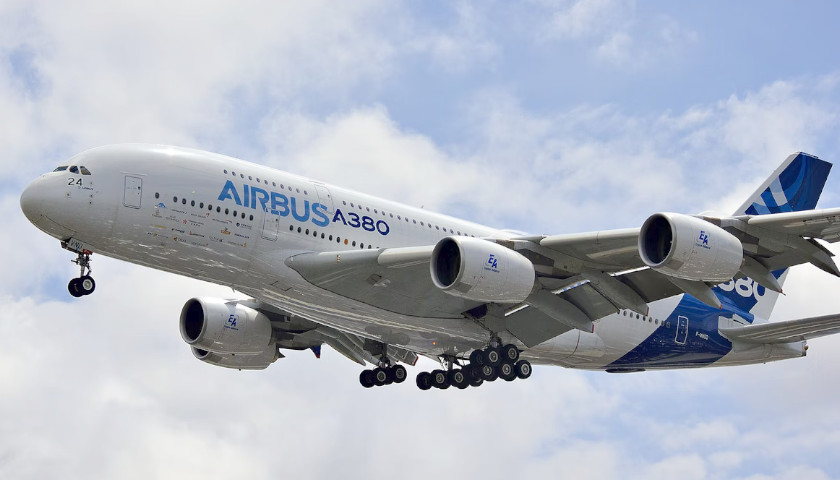by John Moore
Members of the military know they must be able to trust everyone in their squad. This trust is earned. That’s why troops drill together, eat together, and live together. It builds confidence and trust.
Of course, they must also be able to trust their equipment. The Army still remembers when its bazookas were useless against Soviet-made tanks during the Korean war. Today’s American warriors don’t want to repeat the same mistakes by using inferior equipment. And when it comes to weapon systems, there is no reason to trust certain contractors — including the European aerospace giant Airbus.
Airbus is in the running for part of a contract to build new refueling tankers for the U.S. Air Force. But it doesn’t deserve to win, because Airbus has shown a history of cheating to win its contracts.
Just last year in the U.K., a former subsidiary of Airbus was ordered to pay a $42 million fine after it pled guilty to corruption. That charge involved contracts “to provide military communications services for the Saudi Arabian National Guard,” Reuters reported. But that’s not all. “The investigation is unconnected to a record $4 billion deferred prosecution agreement struck by Airbus and U.S., British and French authorities in 2020 after a three-year probe into allegations of bribery and corruption over jetliner sales.”
Airbus is making a habit of bribery and corruption, apparently. It also enjoys the substantial advantage of illegal subsidies from European governments. In 2019, the U.S. Trade Representative won the largest arbitration award in World Trade Organization history, finally settling a 15-year case against Airbus.
“The award of $7.5 billion annually is by far the largest award in WTO history—nearly twice the largest previous award,” USTR announced at the time. The Arbitrator calculated that amount based on WTO findings that EU subsidies to Airbus were causing American manufacturers to lose market share overseas, in Europe, China and Australia.
An earlier WTO panel went even further. It noted that, “[w]ithout the subsidies, Airbus would not have existed … and there would be no Airbus aircraft on the market. None of the sales that the subsidized Airbus made would have occurred.” No wonder it cheated; that was the only way to stay in business.
Still, it isn’t the business of the American military to keep Airbus in business. It’s the business of the American military to win wars. The proposed Airbus tankers aren’t necessary for that, since the Air Force is already buying and flying successful KC-46 tankers. These planes have been repeatedly tested, upgraded and are cleared to refuel just about any plane the Air Force now uses.
By contrast, the Airbus design would be right off the drawing board. It would need to be tested and, no doubt, upgraded many times. This would increase the cost of the tanker program, for no good reason.
The only reason Airbus is in this discussion is because it promises to use an assembly line in Alabama, and that would bring some jobs to that state. So, of course, lawmakers there are in favor of the bid. But that is no reason to ignore the corruption that Airbus brings to the deal. Or the safety questions; Airbus commercial jets have developed odd cracks that several different airlines have all noticed. For its part, Qatar Airlines has grounded its Airbus fleet and is suing the company in British court for $600 million.
Airbus is offering an untested aircraft that may be too large, may not be built very well, and may be the result of more illegal subsidies from European governments. There are so many reasons that American policymakers shouldn’t trust Airbus. And there’s no way American pilots should be forced to fly its tankers.
– – –
John Moore is a former U.S. Army Ranger who served in Iraq and devoted a total of 24 years to military service. After retiring from the military, Moore was elected to the Nevada State Assembly, where he served from 2014-2016.








